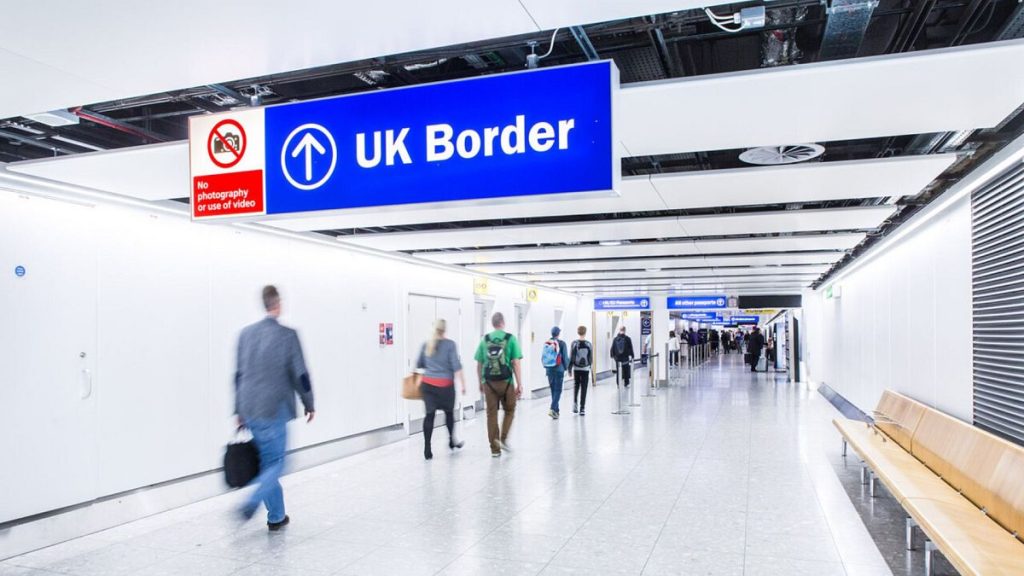The UK’s new Electronic Travel Authorisation (ETA), a digital travel permit required for entry into the country, is set to become more expensive, impacting international visitors and raising concerns within the travel industry. Originally priced at £10 (€11.82), the proposed amendment seeks to increase the ETA fee to £16 (€18.91), representing a substantial 60% hike. While transit passengers will be exempt from the fee, the overall price increase has drawn sharp criticism, with industry leaders warning of potential damage to the UK’s tourism competitiveness and economic growth. The UK Home Office justifies the increase as a necessary measure to reduce the financial burden on taxpayers and bolster the migration and border system, projecting an annual revenue increase of £269 million (€318 million). However, the move has sparked intense debate and awaits parliamentary approval before implementation.
The travel industry has responded swiftly and negatively to the proposed price hike. The International Air Transport Association (IATA), representing over 340 airlines globally, has expressed bewilderment at the timing of the increase, coming shortly after the ETA system’s launch. IATA Director General Willie Walsh criticizes the move as a “self-inflicted blow” to the UK’s tourism ambitions, directly contradicting the government’s stated goal of significantly boosting tourism by 2030. AirlinesUK echoes these sentiments, labeling the increase “bitterly disappointing” and highlighting the detrimental impact on the UK’s economic growth, particularly given the country’s reliance on air connectivity. Critics argue that adding further costs to an already expensive travel landscape, including high Air Passenger Duty, deters international visitors and undermines the UK’s ability to compete on the global stage.
A positive development amidst the controversy is the government’s decision to exempt transit passengers from the ETA requirement. This reversal addresses concerns raised by major airports like Heathrow, which feared losing significant passenger numbers due to the added cost for transit travelers. The exemption applies specifically to passengers connecting to other flights without passing through immigration and is seen as a vital step in maintaining the viability of international routes, especially to emerging markets. While this concession is welcomed, industry stakeholders urge the government to make the exemption permanent, recognizing the crucial role transit passengers play in sustaining global connectivity.
The proposed ETA price increase has ignited concerns about the future of UK tourism. Industry experts argue that escalating costs, coupled with other factors like the abolition of tax-free shopping and high VAT rates on hospitality, create a less attractive environment for international visitors. Compared to the upcoming European ETIAS system, which offers access to 29 Schengen countries for €7 with a three-year validity, the UK’s ETA appears significantly less competitive. This disparity is further exacerbated when considering family travel, where the cost difference becomes even more pronounced. With the potential addition of tourist taxes in some areas, the cumulative effect of these costs casts a shadow over the UK’s appeal as a tourist destination.
The confluence of rising ETA costs, increased Air Passenger Duty, and existing high taxes raises serious questions about the UK’s ability to attract and retain international visitors. The travel industry warns of a “layering of additional charges” that threaten to stifle growth in a sector previously projected for strong performance. The disparity in VAT rates on hospitality compared to other European countries further underscores the UK’s challenging position in the competitive tourism landscape. With international tourism representing a significant export sector for the UK and contributing significantly to the economy, stakeholders urge the government to adopt policies that foster growth and enhance competitiveness, rather than deterring visitors through escalating costs.
The debate surrounding the ETA price increase highlights the tension between generating revenue for the government and maintaining a thriving tourism sector. While the Home Office seeks to reduce reliance on taxpayer funding, industry leaders argue that the long-term economic consequences of deterring international visitors outweigh the immediate financial gains. The ongoing discussions and parliamentary review will ultimately determine the fate of the proposed price hike and its impact on the UK’s tourism landscape. The industry’s call for a more balanced approach underscores the need to consider the broader economic implications of travel policies and prioritize strategies that support sustainable growth in the tourism sector.









